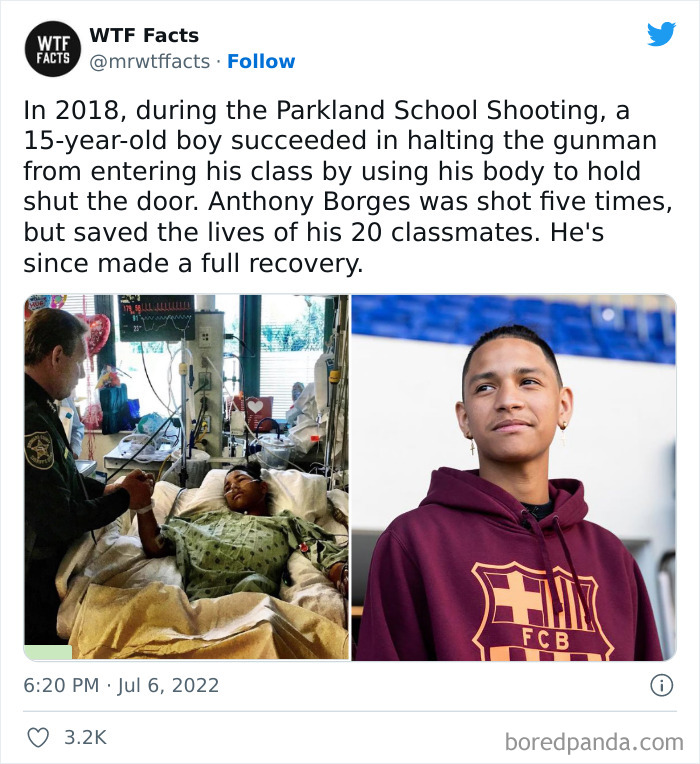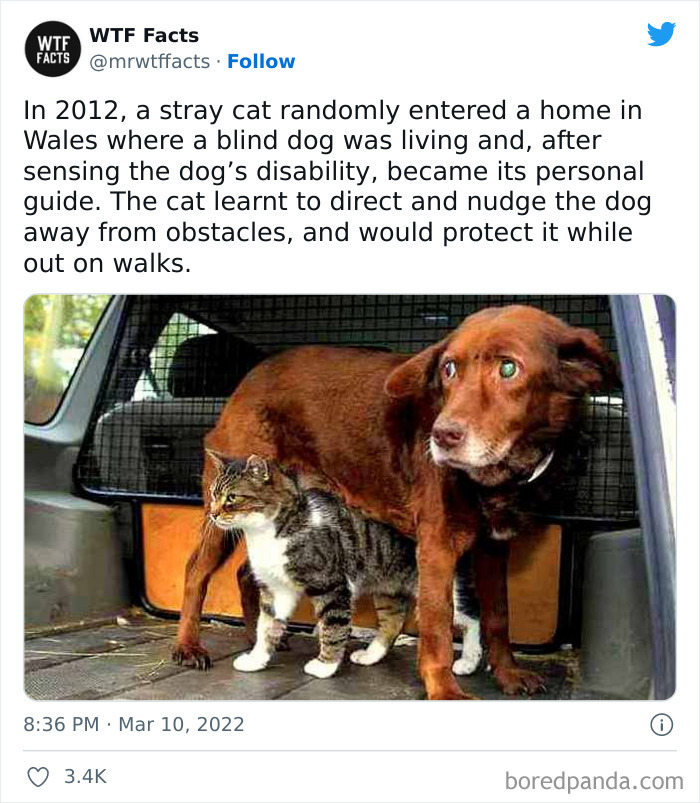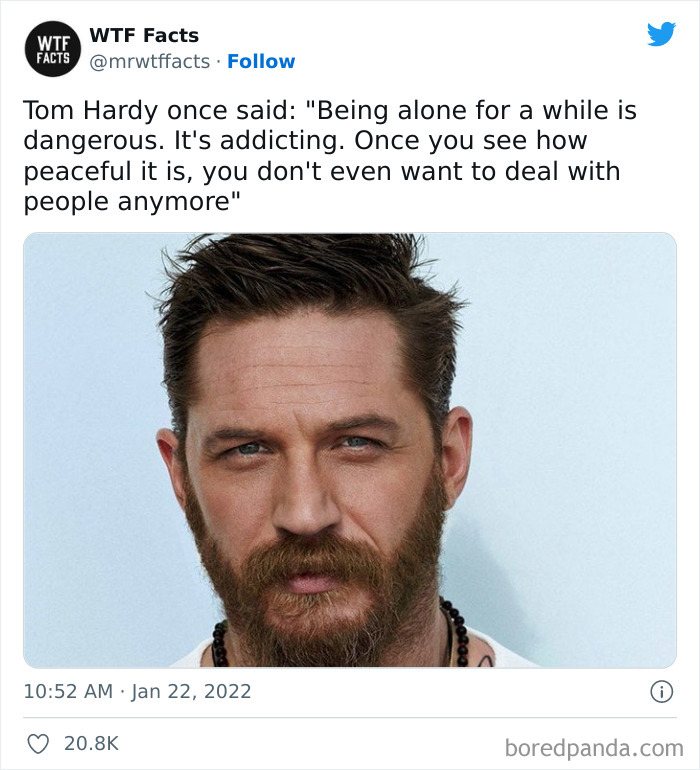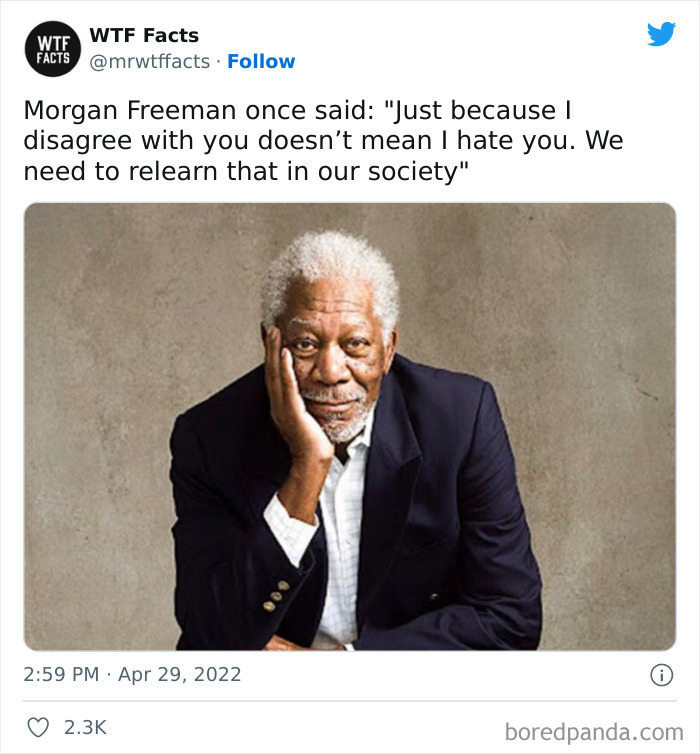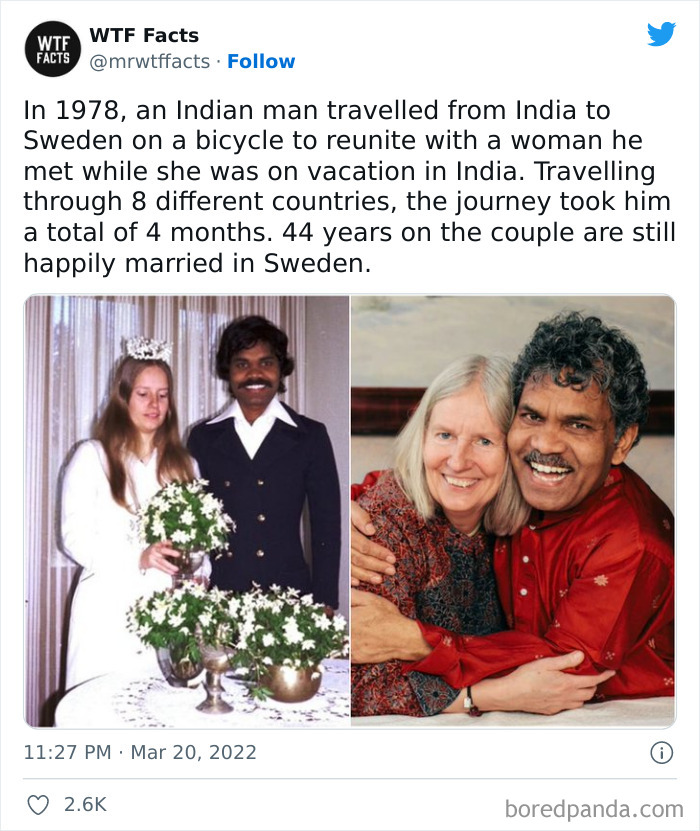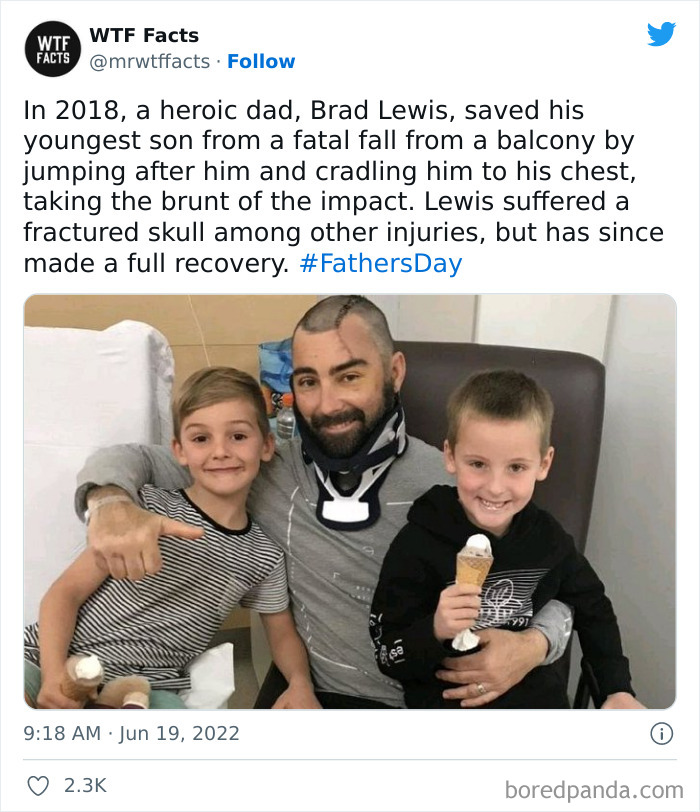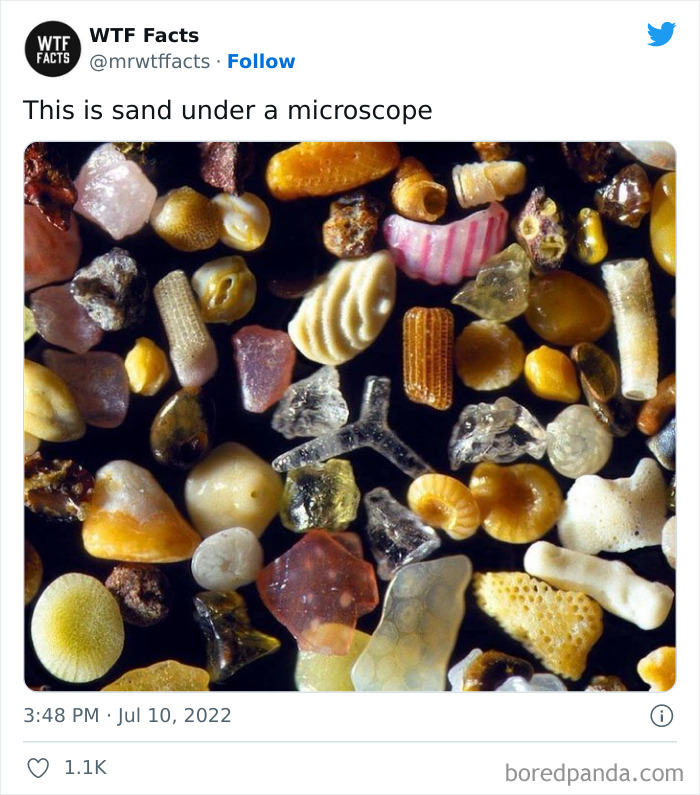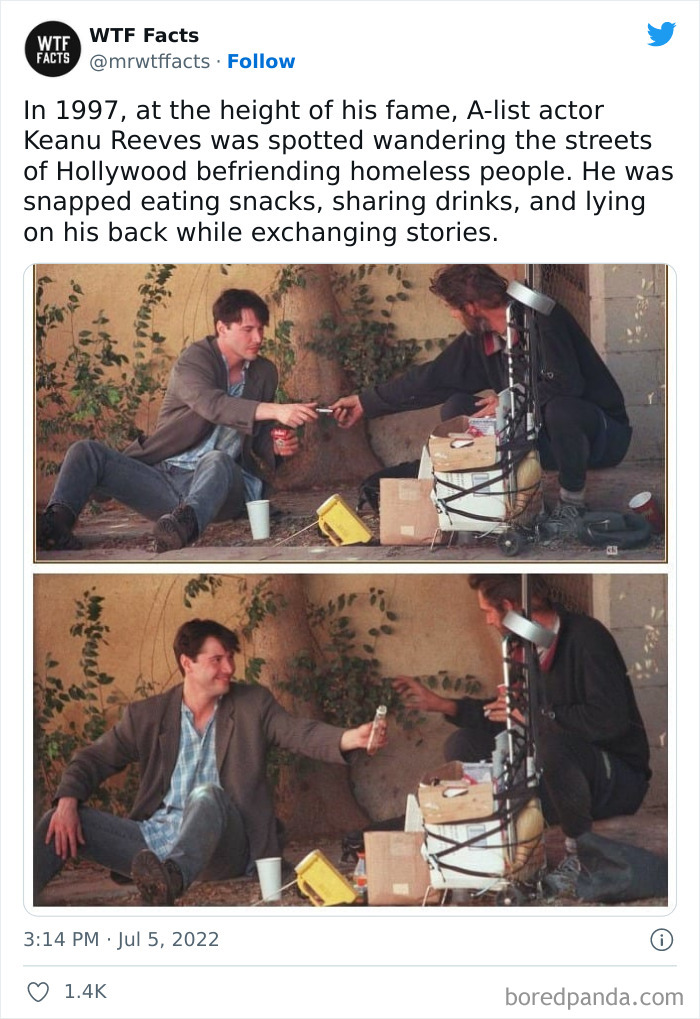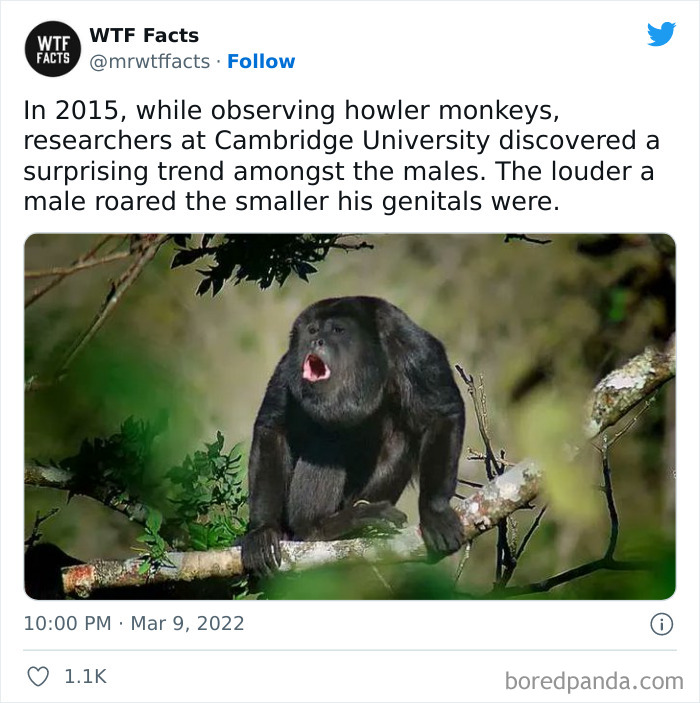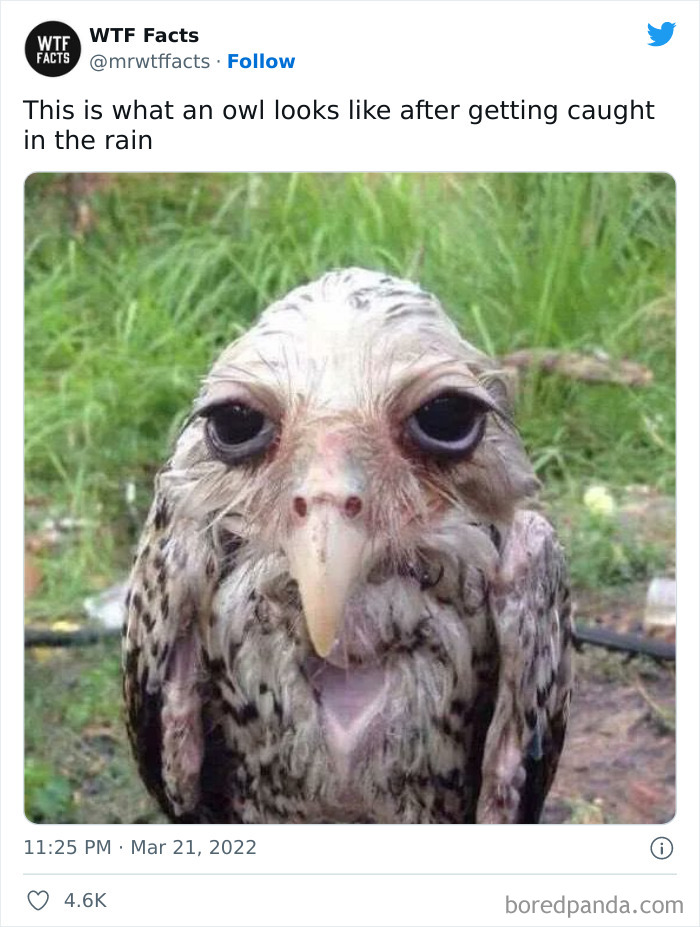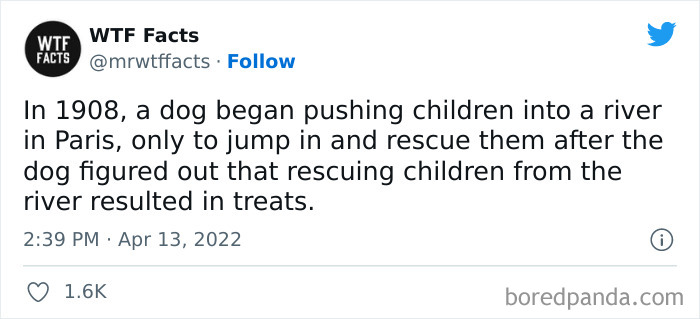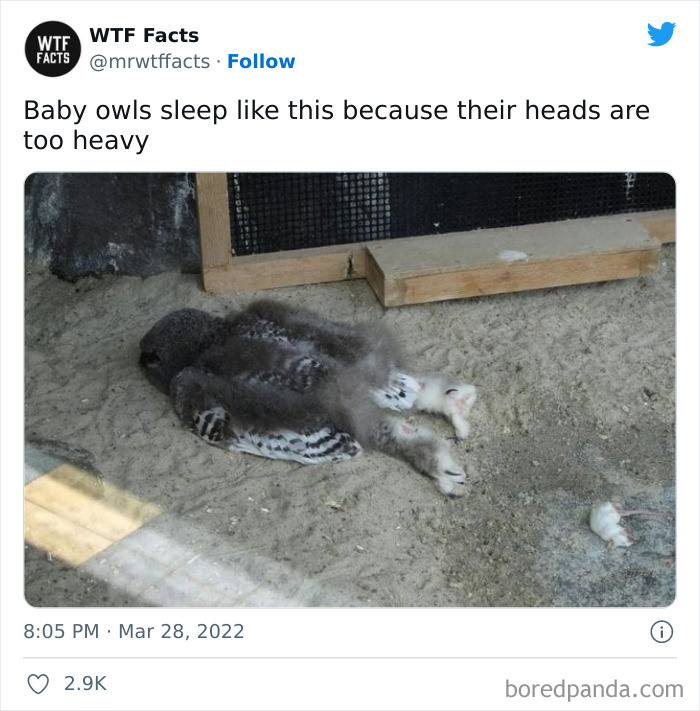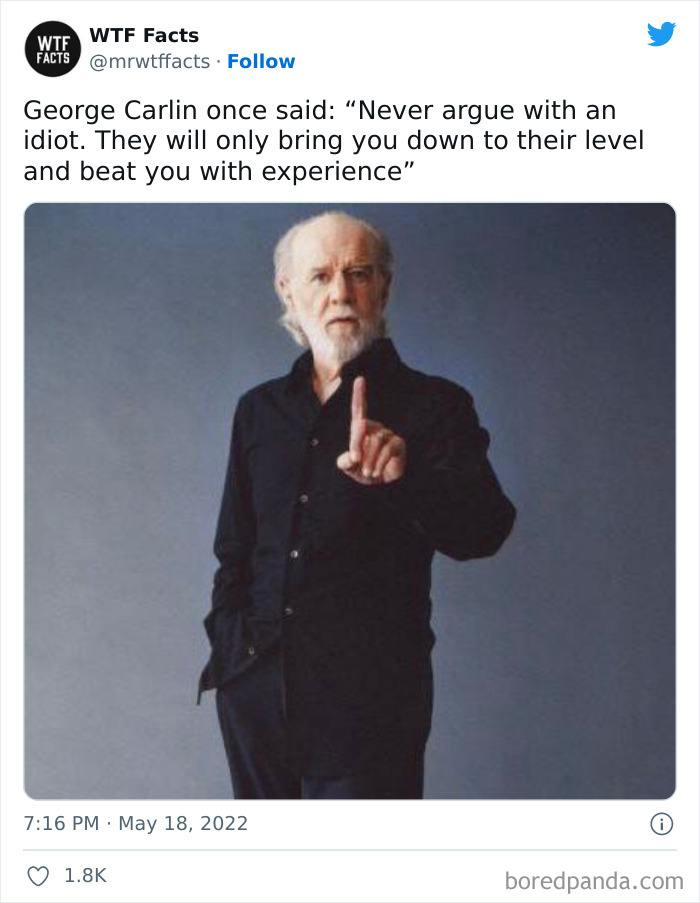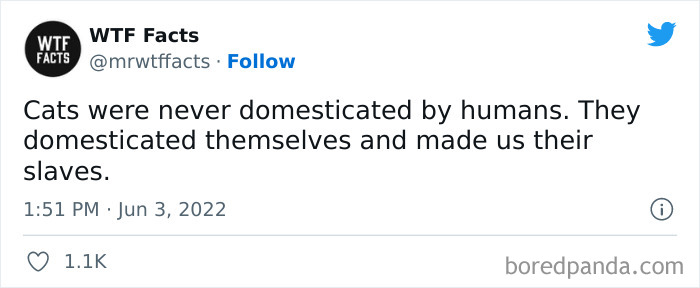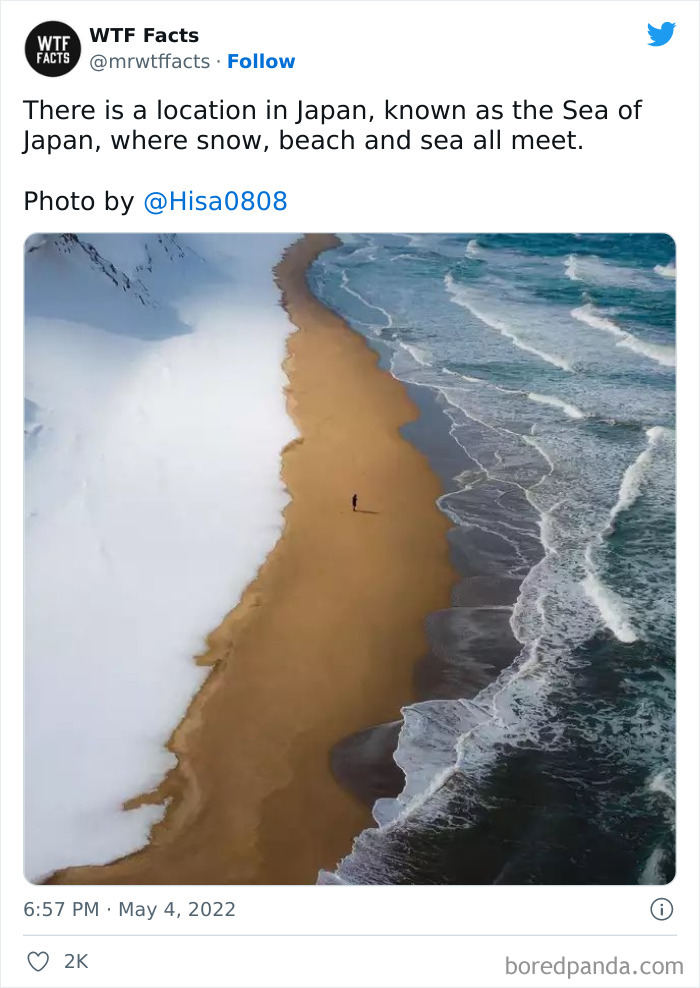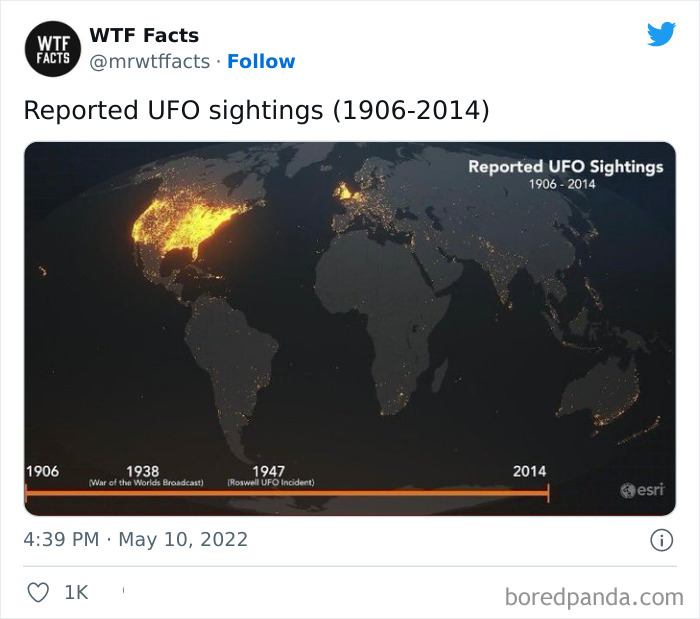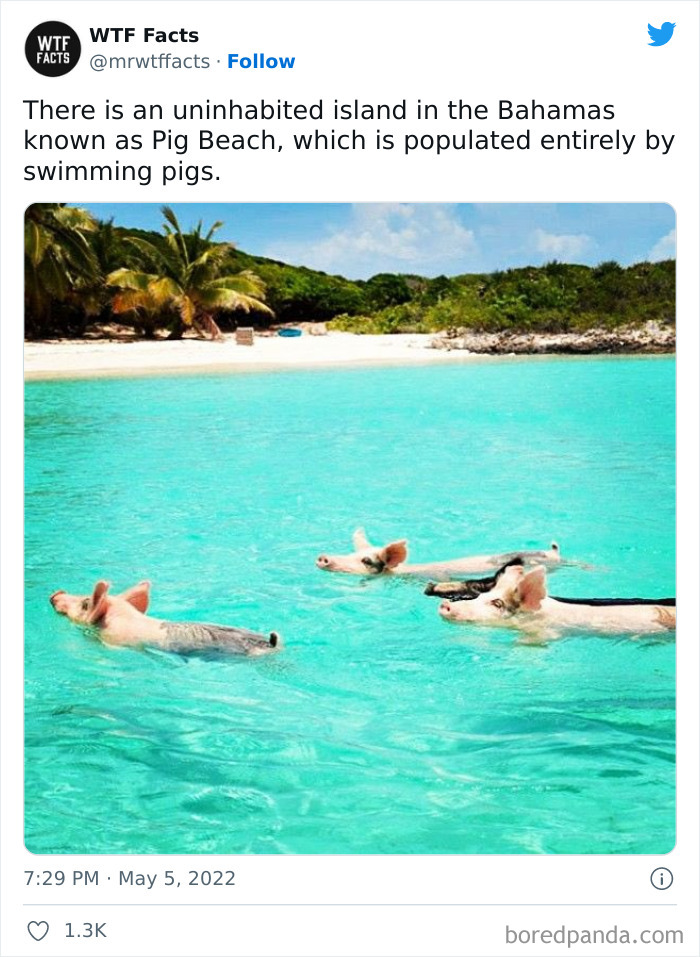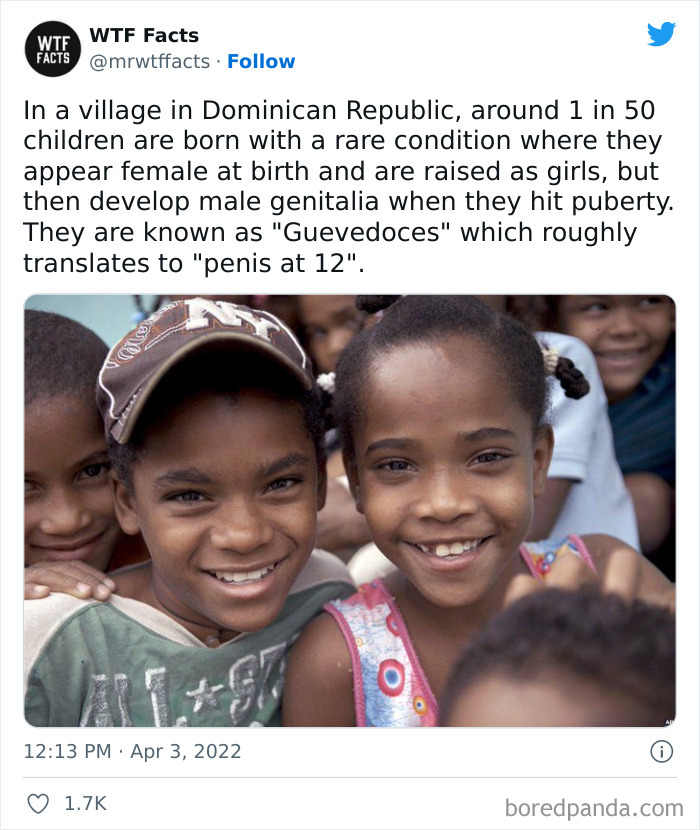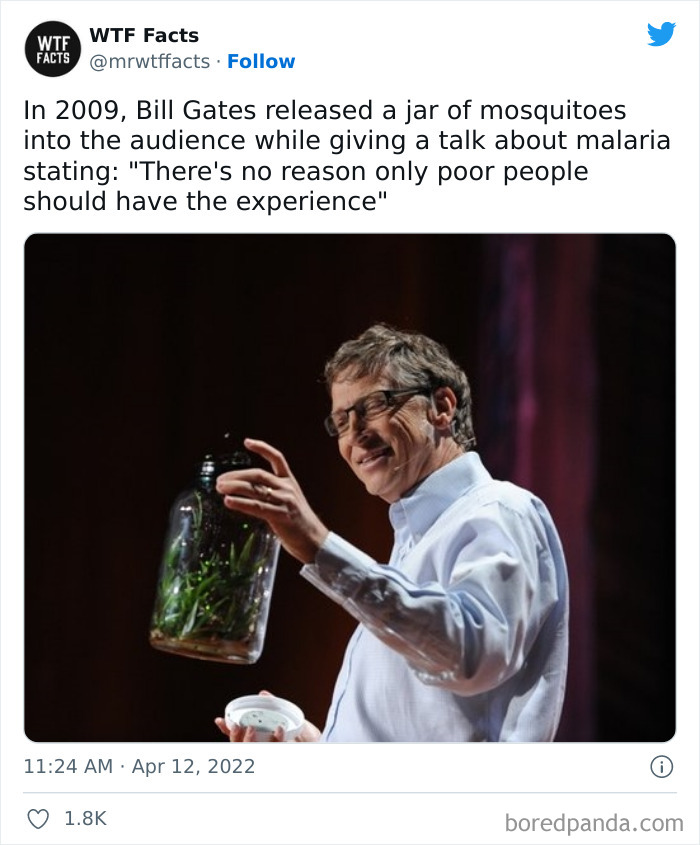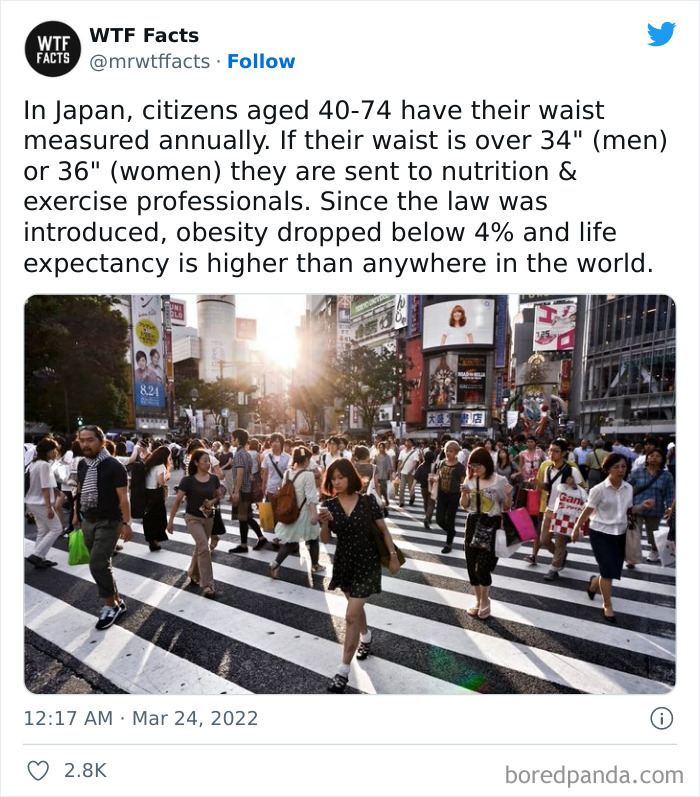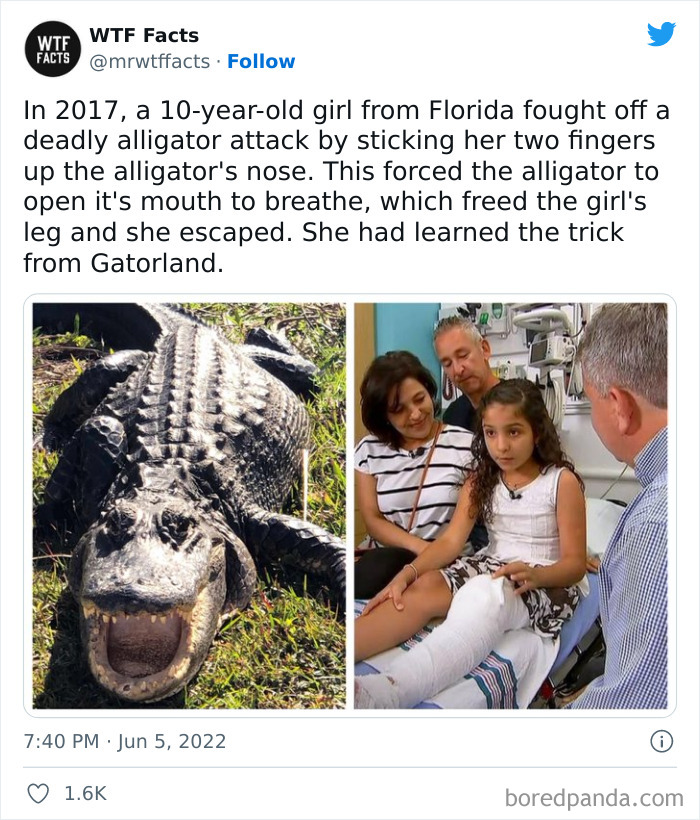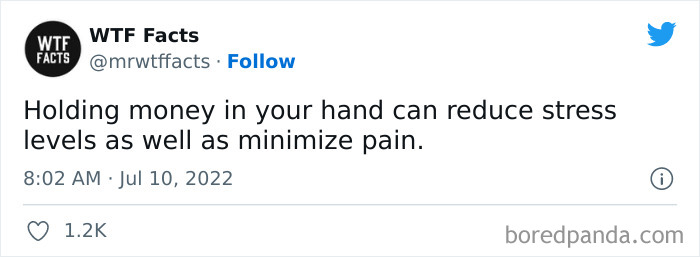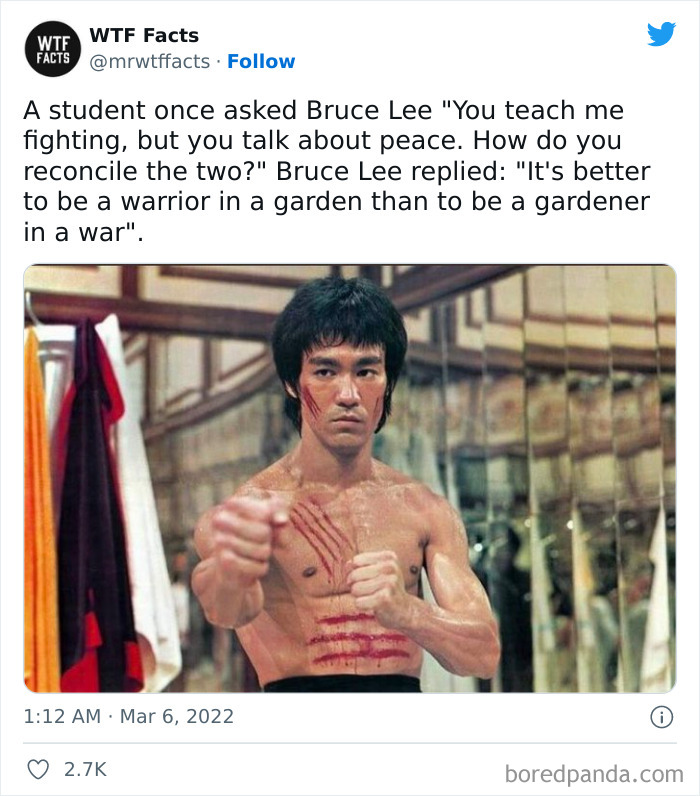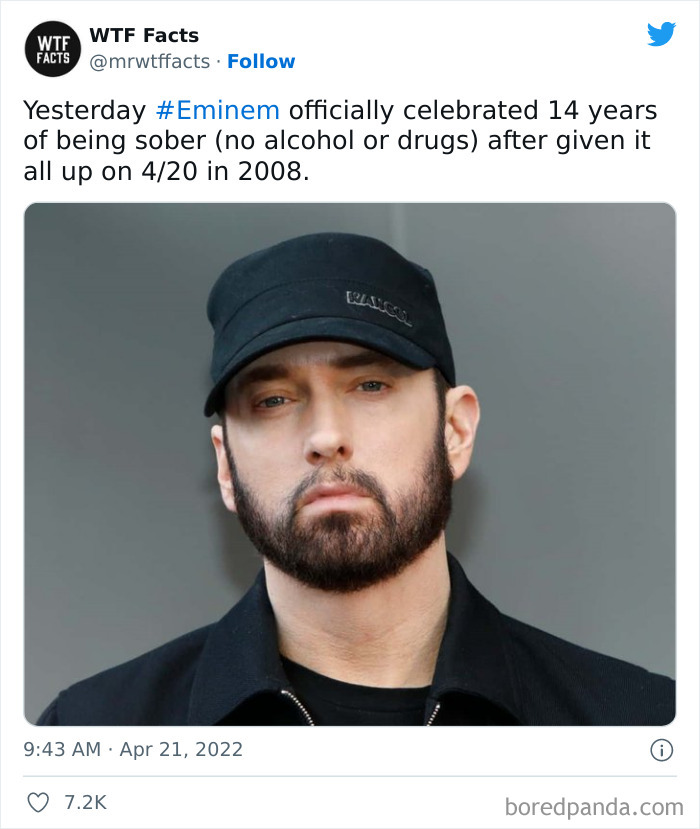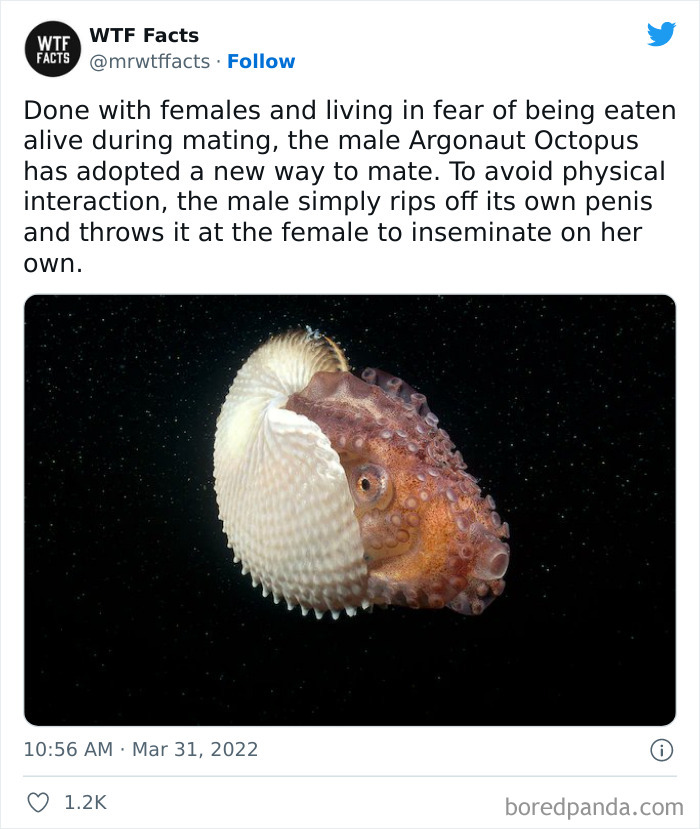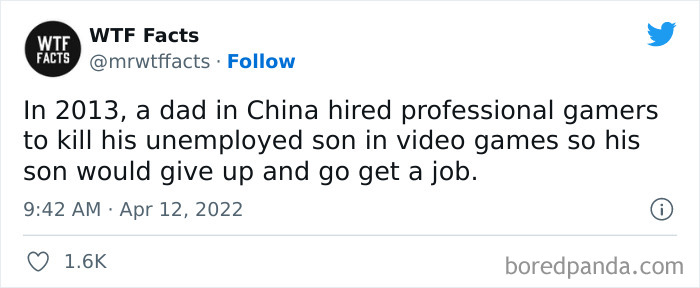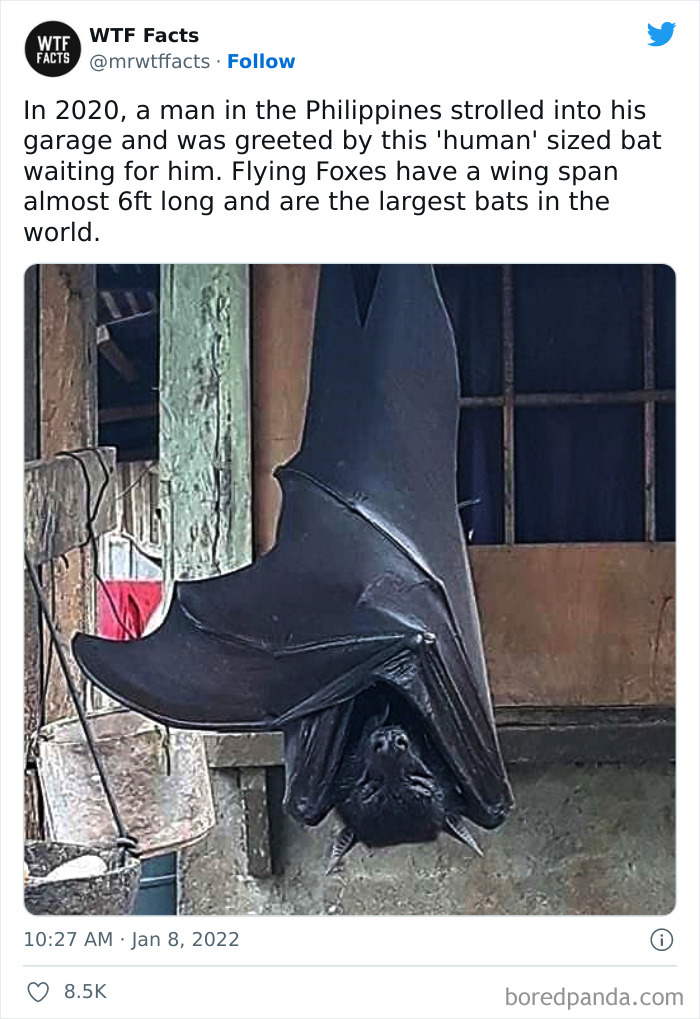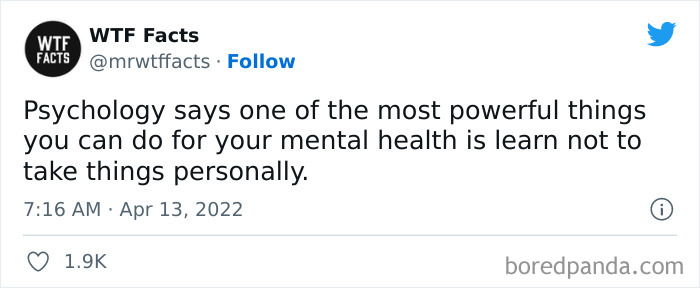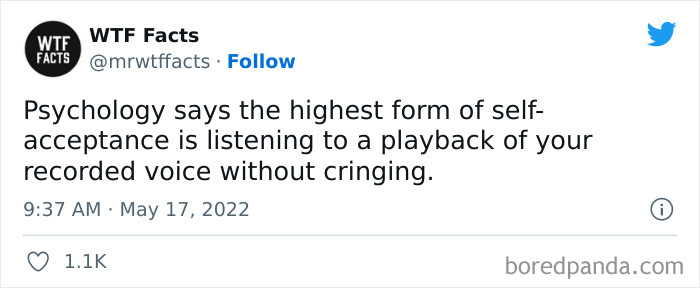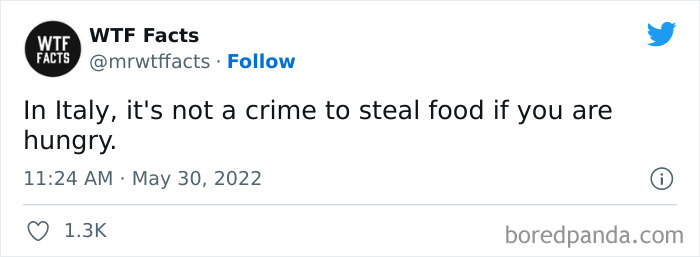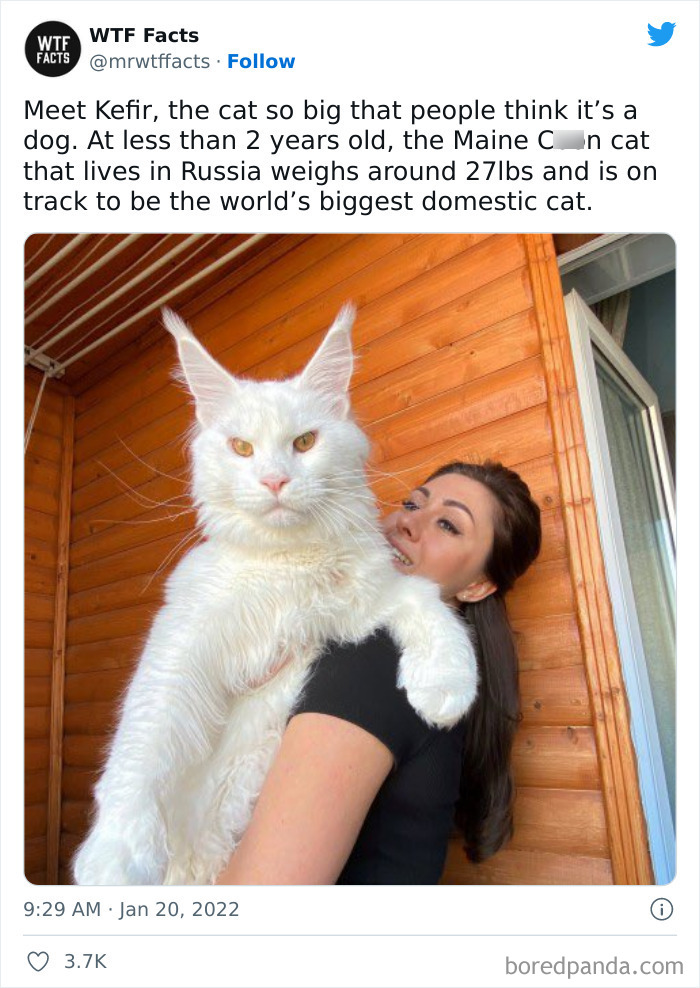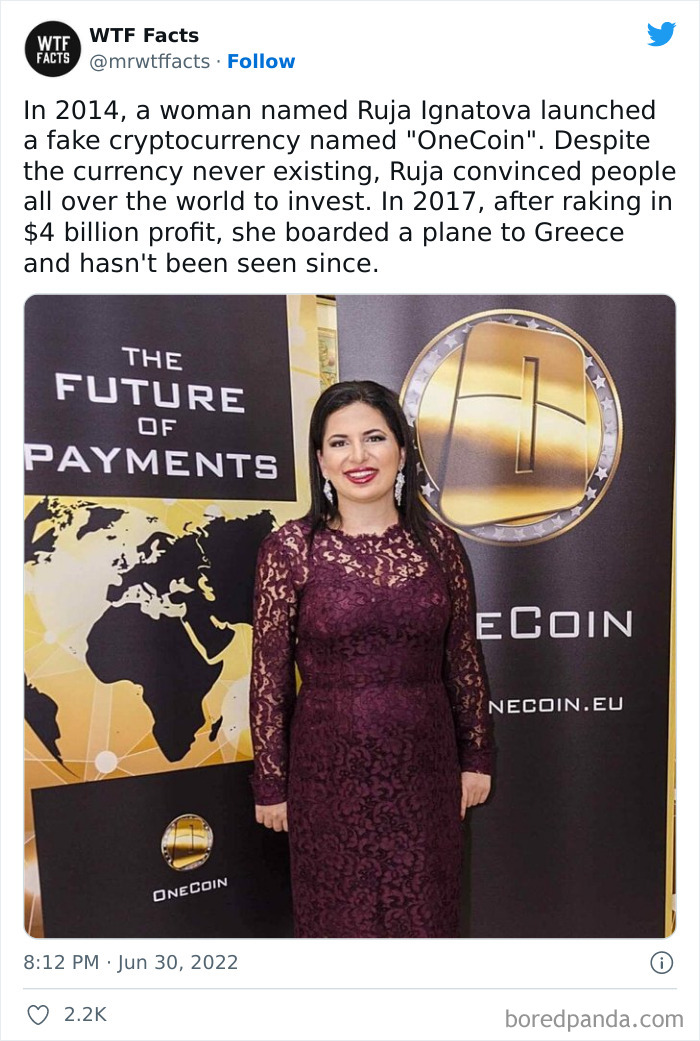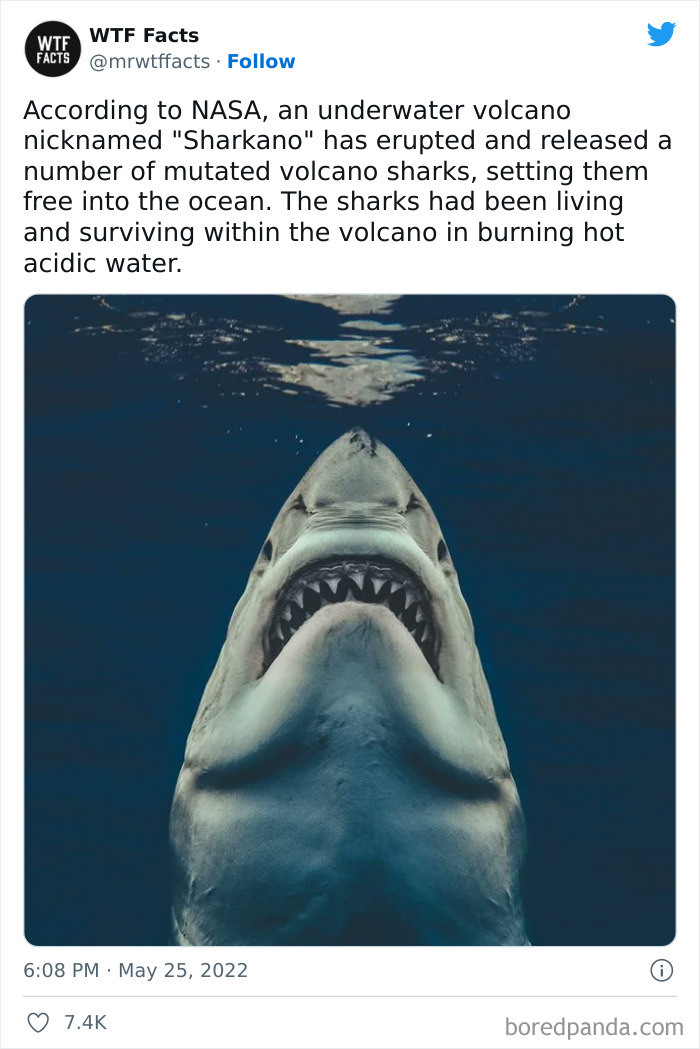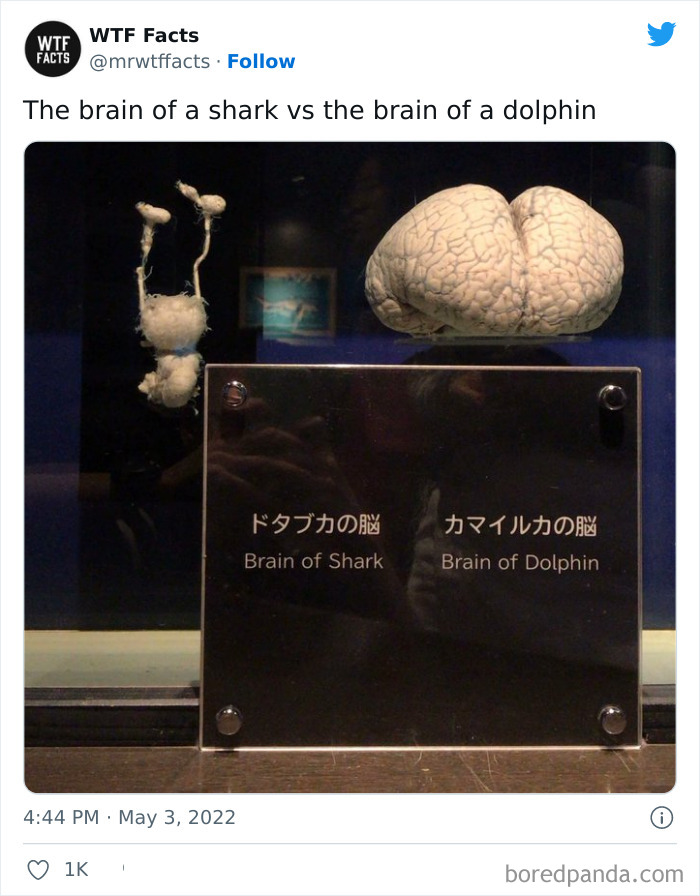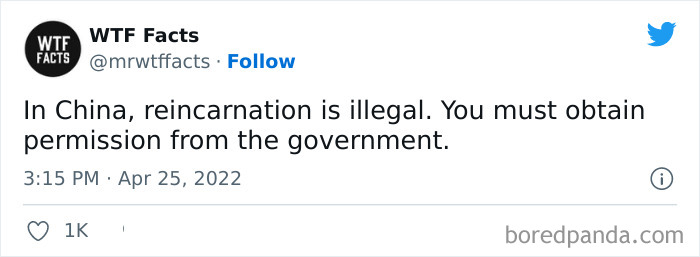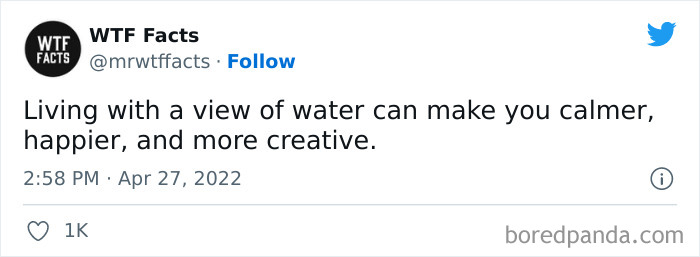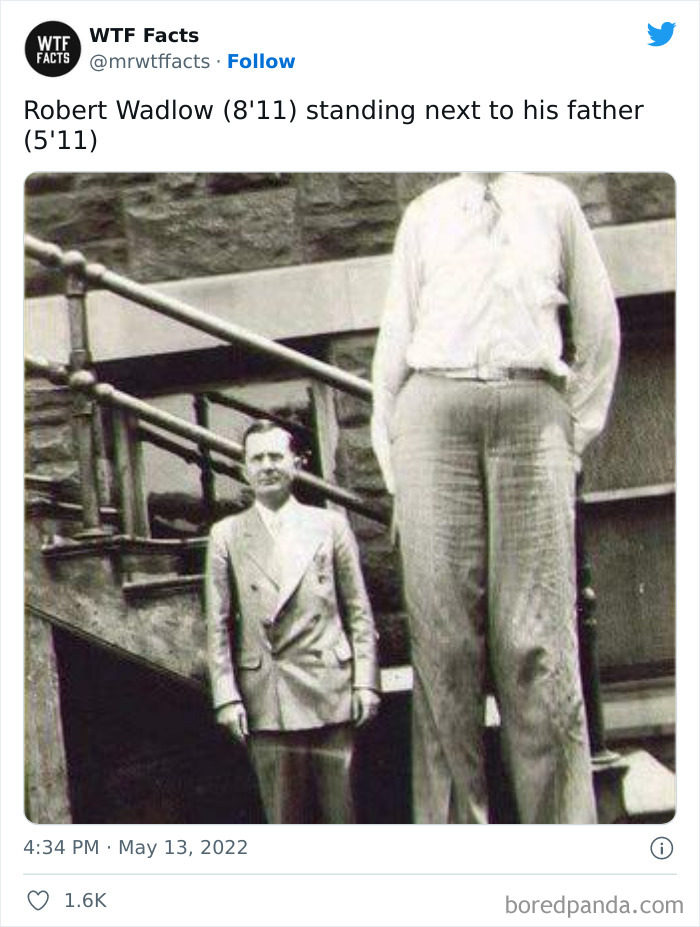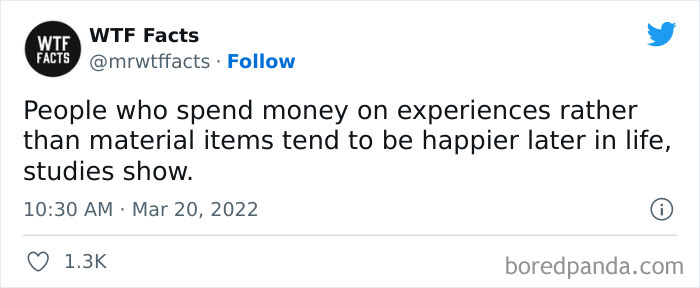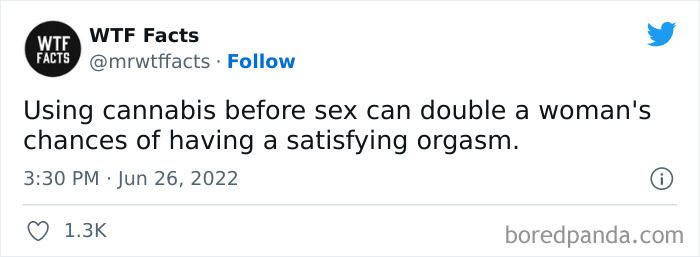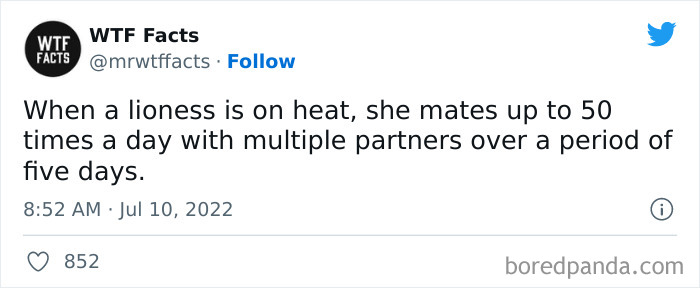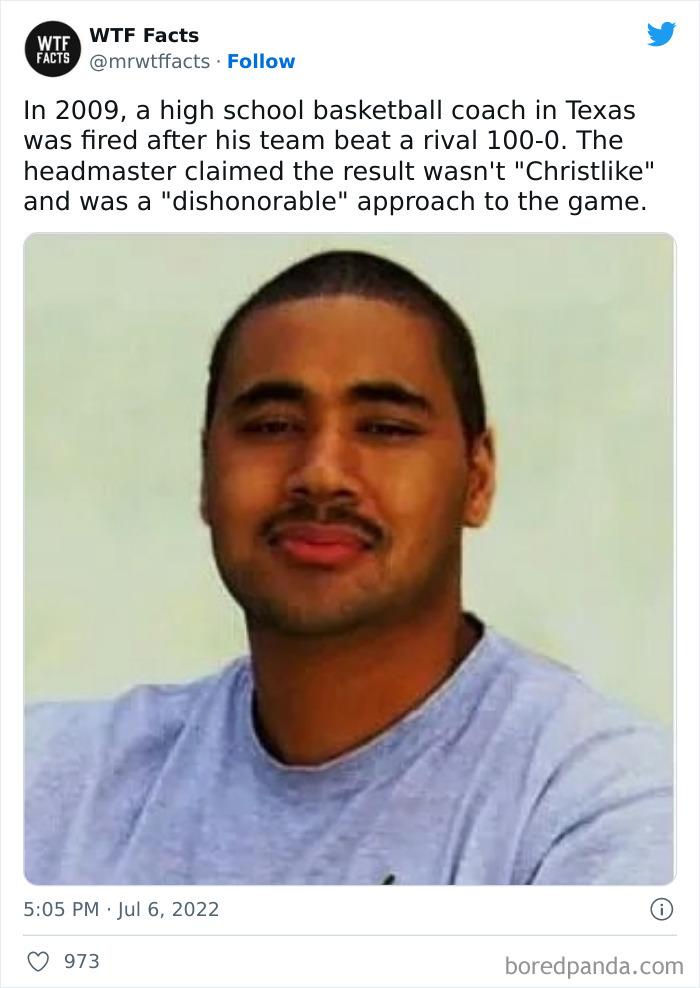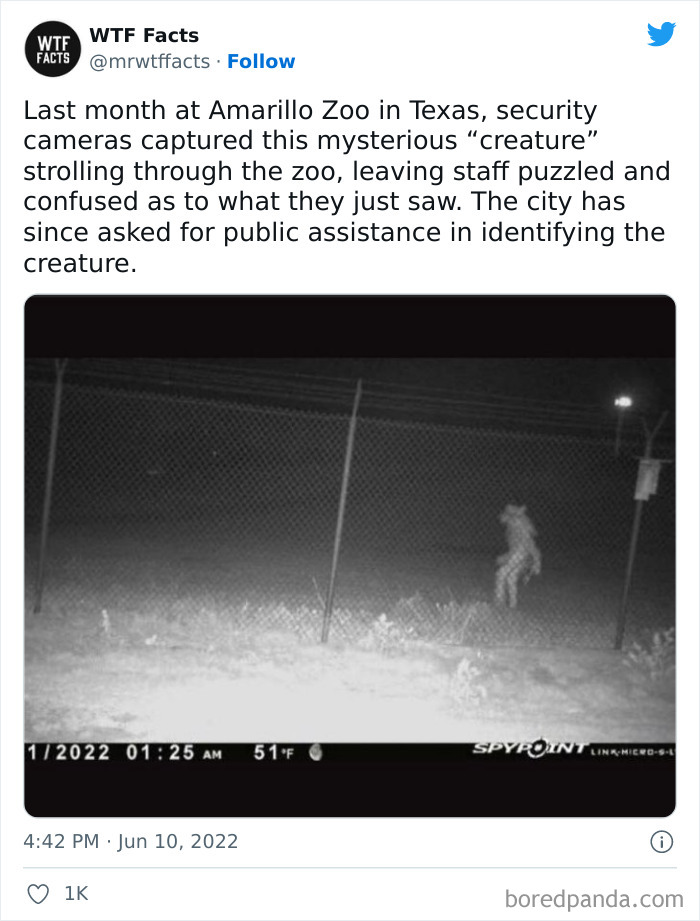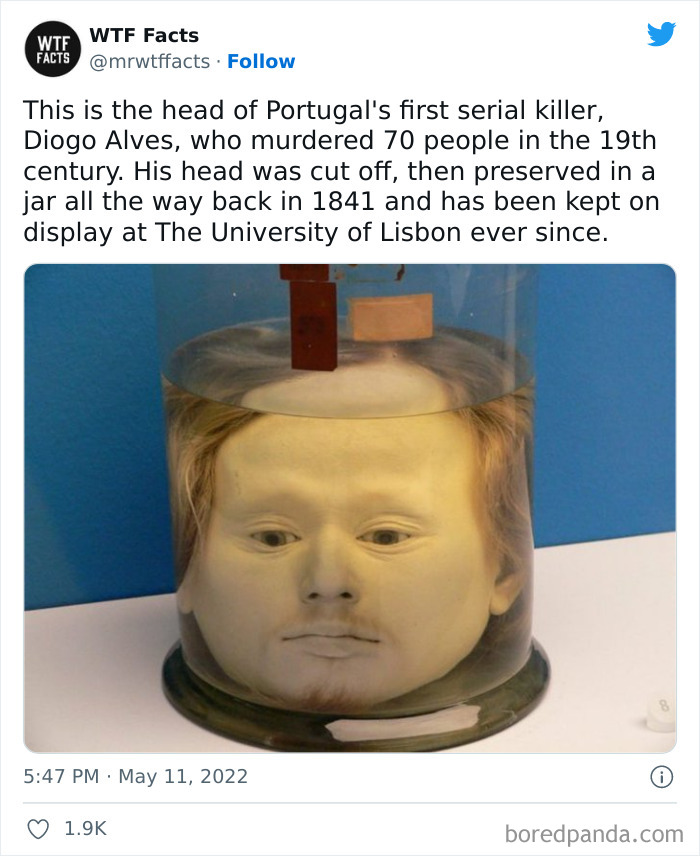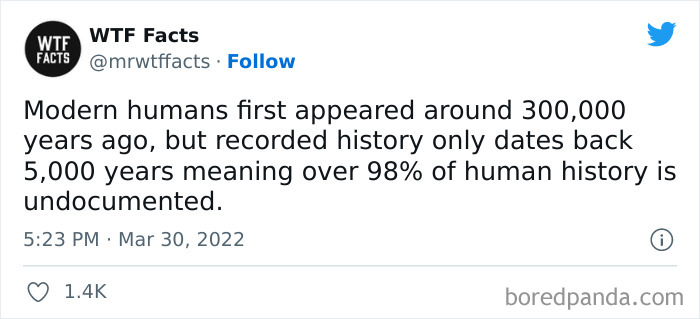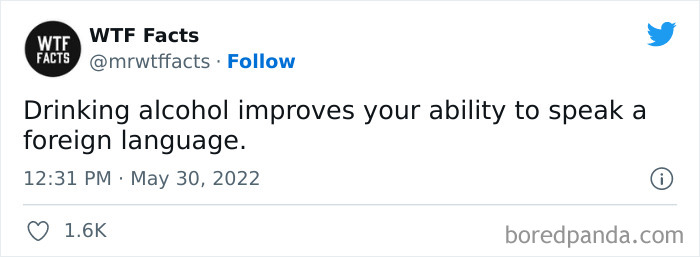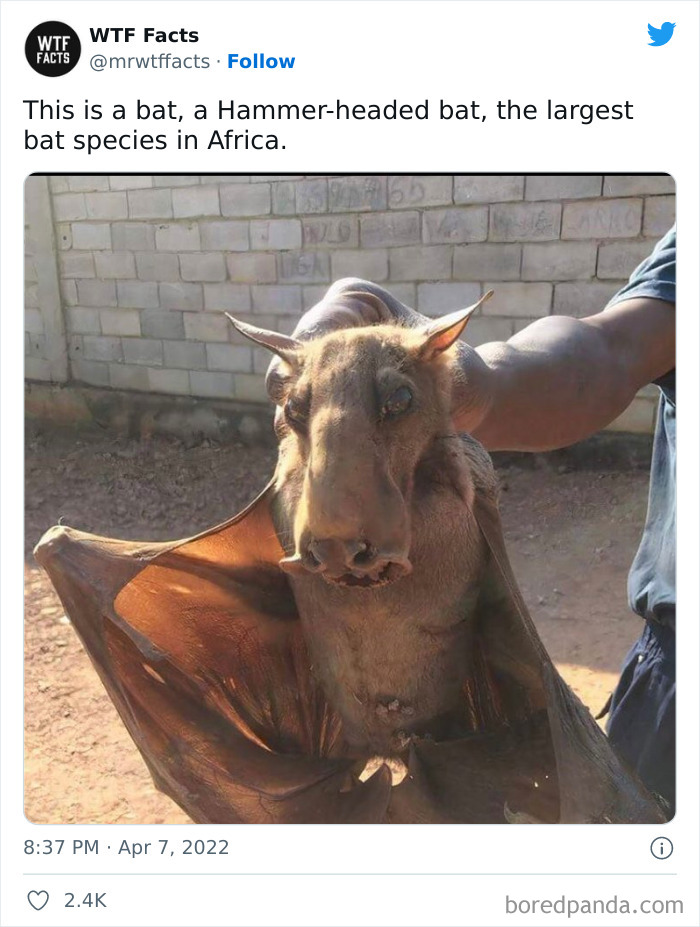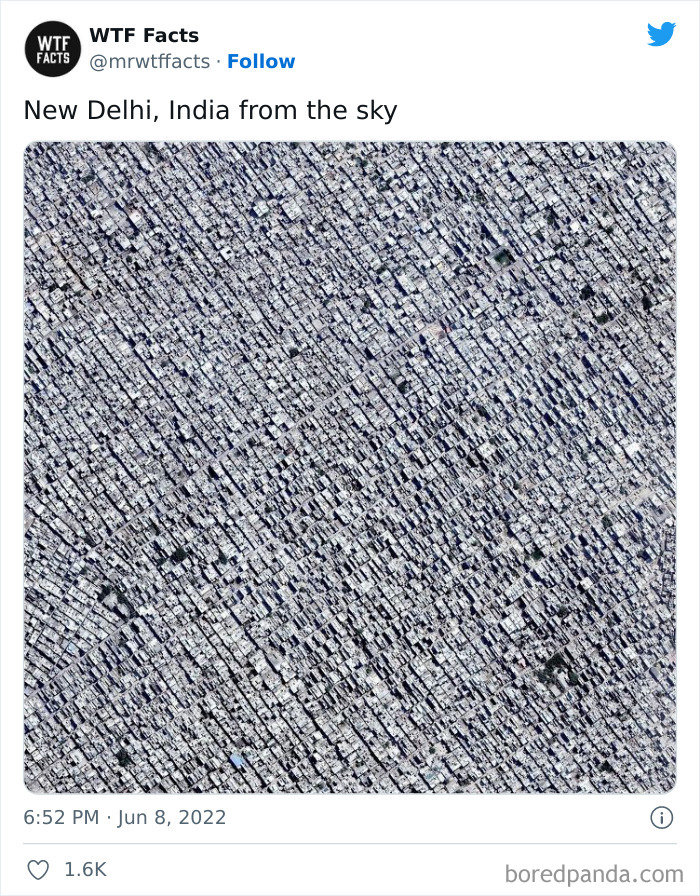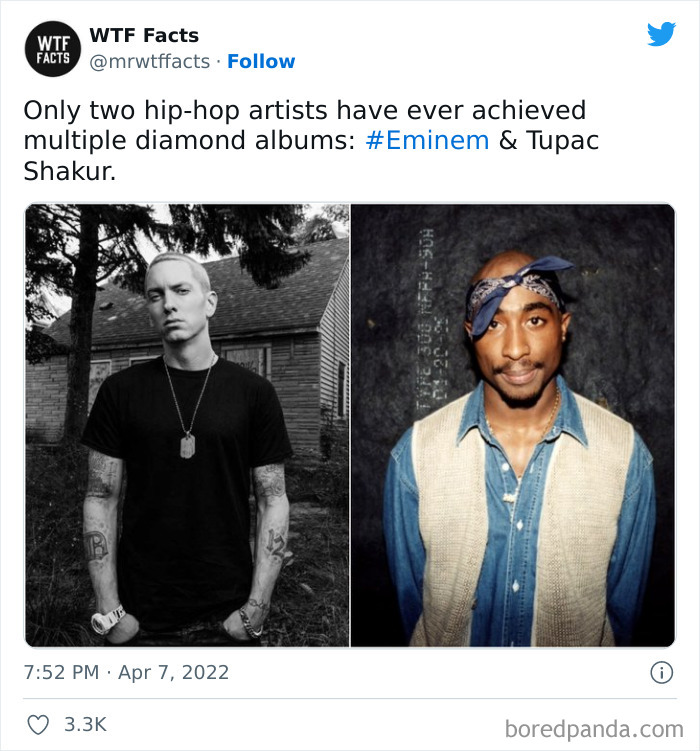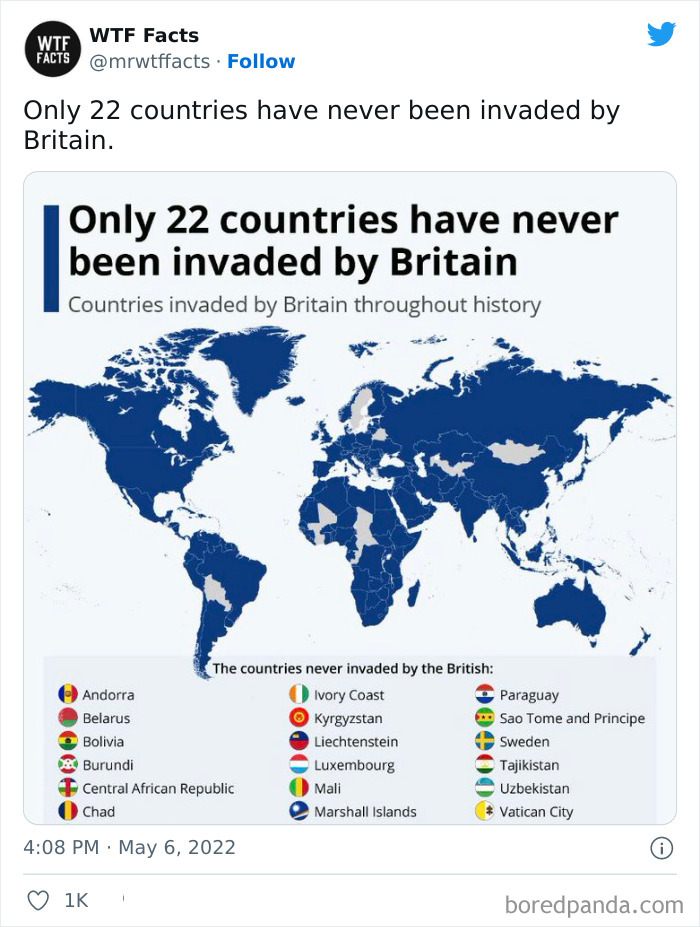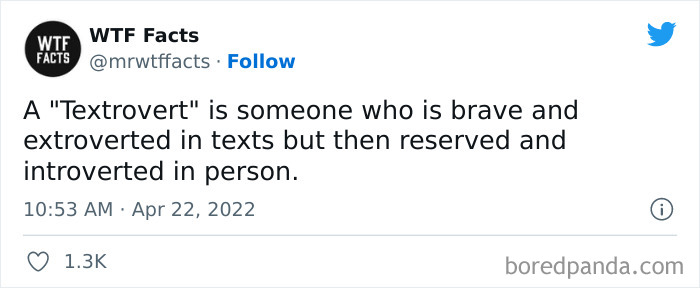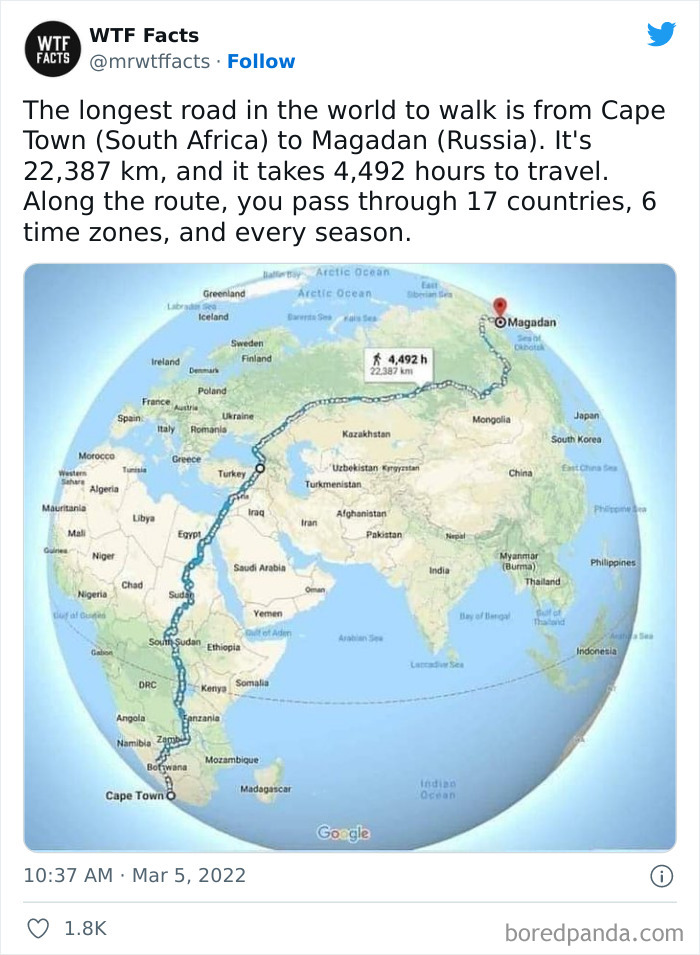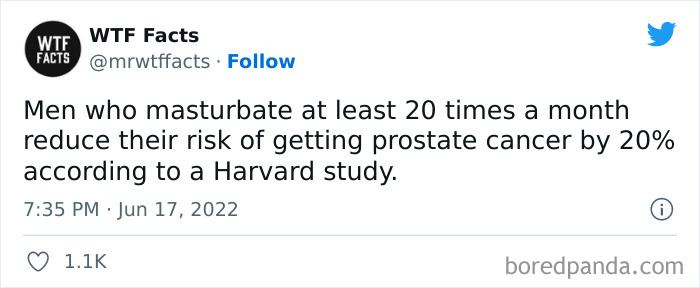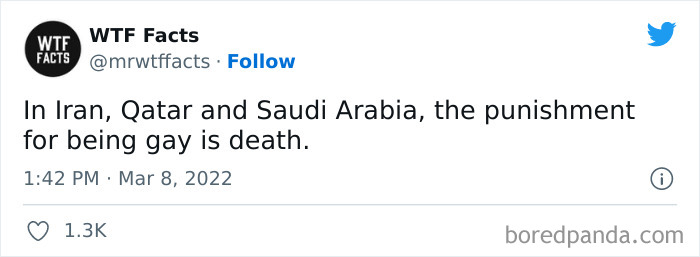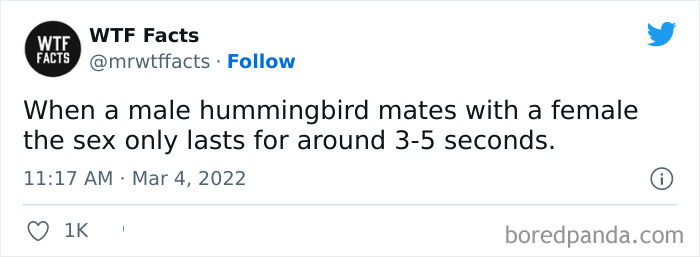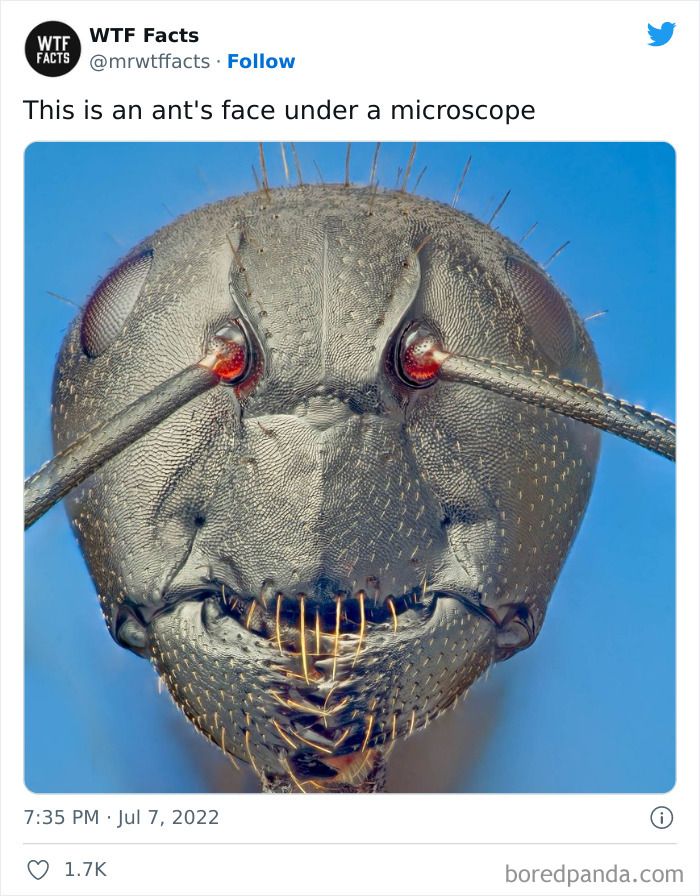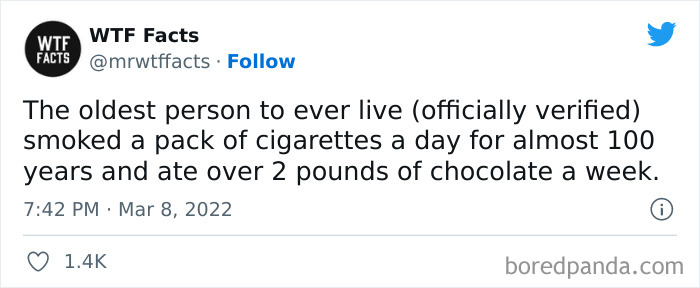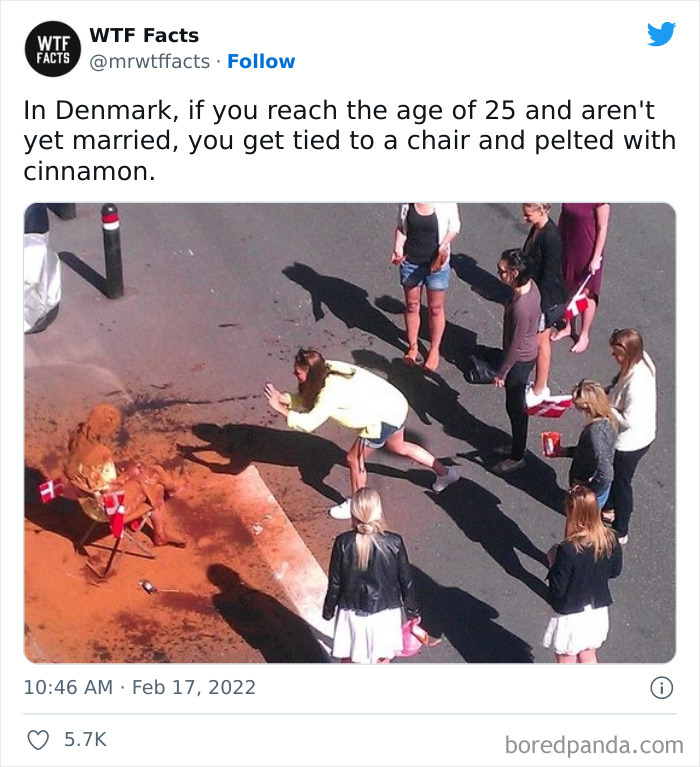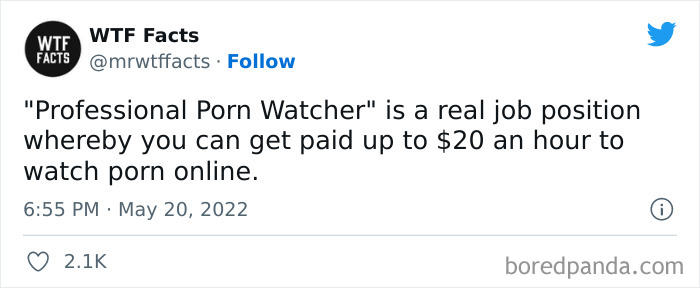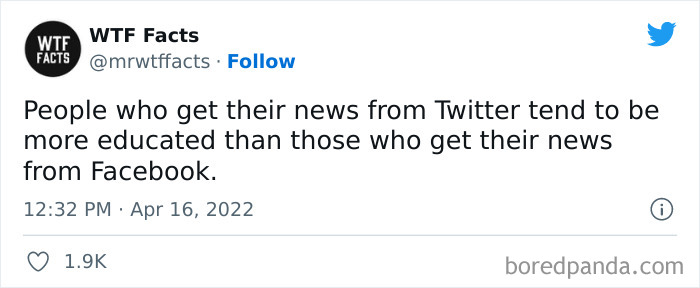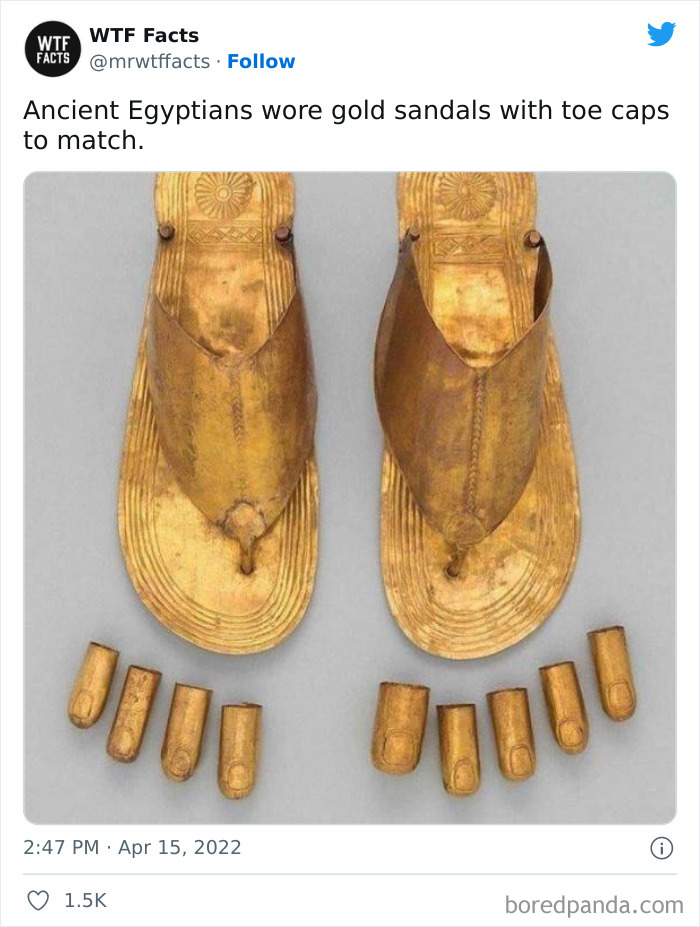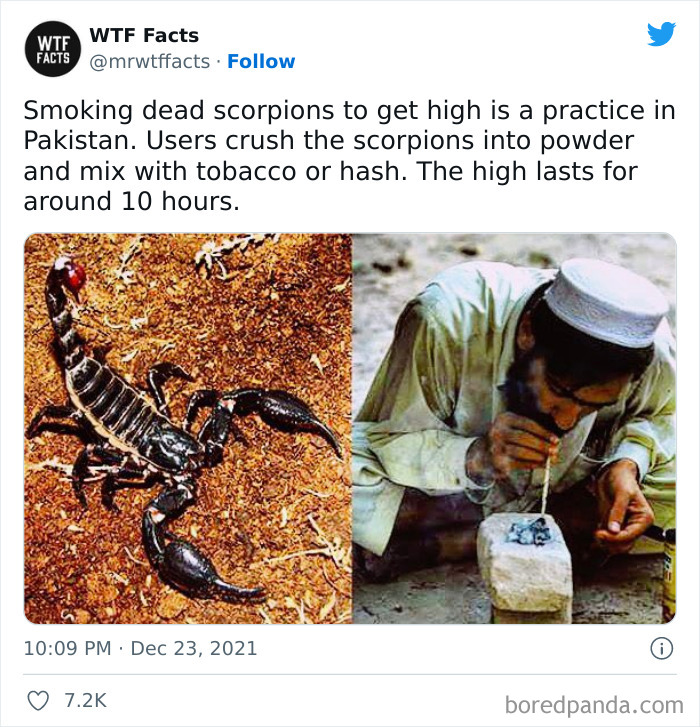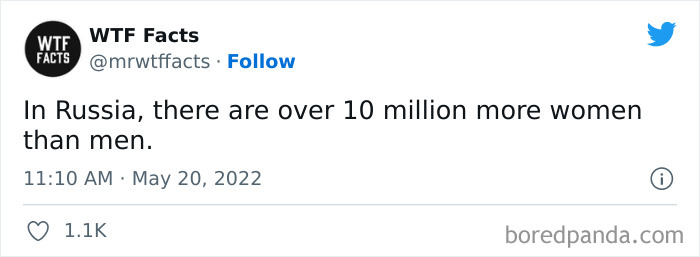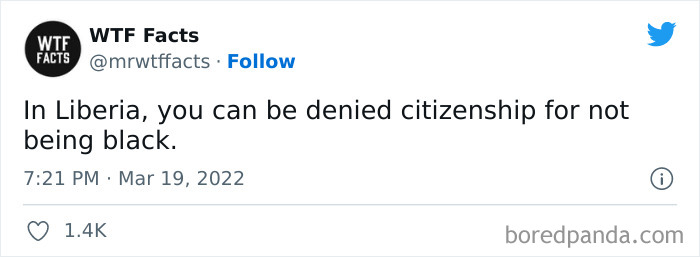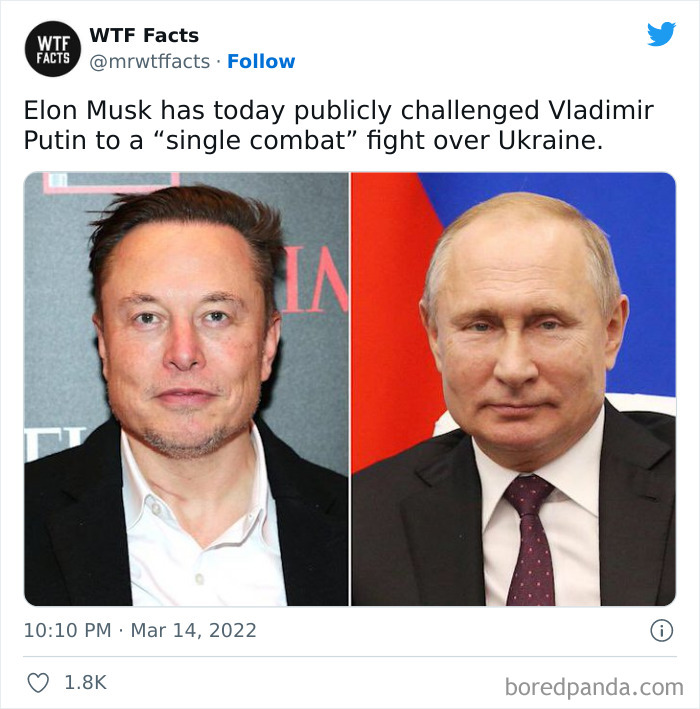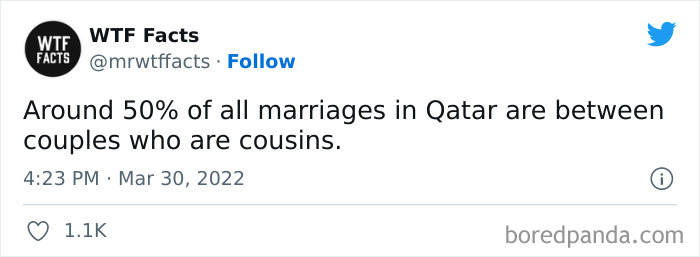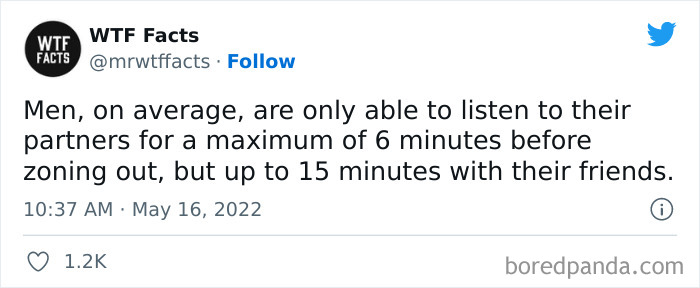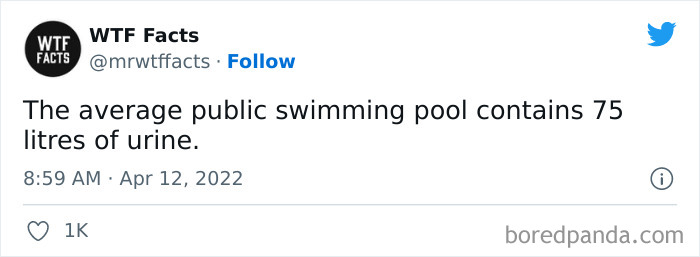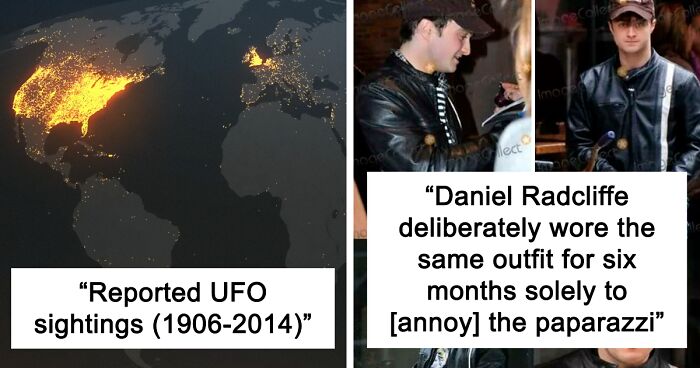
50 Random Facts That Sound Super Weird But Are Totally True, As Shared By This Twitter Account (New Pics)
Curiosity and learning never go out of style. No matter the year. No matter the season. In a world that’s full of half-baked conspiracy theories, disinformation, and over-exaggerated (or completely made-up) trivia, it’s nice to find a source that you can trust. It only helps when it’s entertaining as heck, too. Enter, stage left—the ‘WTF Facts’ Twitter account.
A project that has 182.7k fans on the social media site, ‘WTF Facts’ shares daily facts about the world that you might have never heard before. History, science, and more, the account covers pretty much everything and has something to interest everyone. And it’s a surefire way to get you to dig deeper and do more research on the bizarre topics.
We’ve compiled the most intriguing new facts shared by the account to make your week a tad more interesting, Pandas. Don’t forget to upvote your fave facts as you scroll on down, and be sure to tell us which ones really blew you away.
Meanwhile, if you’re hungry for more knowledge like the proud Ravenclaws we suspect you are, you’ll find Bored Panda’s articles about the wonderful and weird ‘WTF Facts’ project right here: Part 1, Part 2, and Part 3.
Meanwhile, read on for Bored Panda's interview with Steven Wooding. A member of the Omni Calculator project and the Insitute of Physics in the United Kingdom, he shared some of his thoughts about why intelligence is valued so much, what to do as a scientist if you expect a theory might be wrong, and how he'd get someone interested in physics.
This post may include affiliate links.
Steven, a member of the Omni Calculator team and the founder of the Weird Units Converter, told Bored Panda that, on the positive side, people like to help others by sharing their knowledge. That's why society values intelligence so much. Though that's just one side of the equation.
"However, it can be a negative behavior if someone uses their superior intelligence to belittle other people," he said that some people see their intelligence as an excuse for arrogance.
"As with most things, we need to find a happy balance. Looking at the big picture, humans have had extraordinary success in evolutionary terms by sharing knowledge," he said that there's a correlation between the two.
We tend to believe the things that are repeated the most, whether they're true or false. Nobody's quite immune to this, no matter how smart they are. Bored Panda wanted to get Steven's opinion on what a scientist might do if they suspect that a certain theory might be incomplete or completely wrong, even though their colleagues believe it.
"The short answer is that you should repeat the truth more often than falsehoods," Steven, from the Omni Calculator team, told us.
"The longer answer is probably to convince people one by one and hope they can spread the truth for you. Scientists can get very frustrated that a large part of the population holds a particular unscientific view, but the truth will win in the end. One example is the increasing belief now in human-made climate change compared to a few decades ago," he pointed out that the truth ends up in the spotlight, sooner or later. However, it's still important that scientists fight for the public to accept the truth.
This is why cats are so great, they're like the grumpy, sarcastic character in a book or movie that turns out to have a heart of gold....or be an evil psychopath.
We were also curious as to how Steven would spark someone's curiosity about physics. Here's what he had to say: "I would tell them about exoplanets and that nearly every star you see in the sky has at least one orbiting planet."
He continued: "Just as in our solar system, there are many different types of alien worlds out there, so the subject is endlessly fascinating. I would encourage them to learn how we detect exoplanets and introduce them to a citizen science project where they can help discover new planets." Are we going to spend our lunch break googling exoplanets? Darn right we are!
Created in May 2020, ‘WTF Facts’ has carved out a great niche for itself over the past two+ years. It hooks people in with the strange facts it presents, as well as the cool visuals. The fact-checking they do also doesn’t hurt.
If you ever felt like you know pretty much everything there is to know about the world or that things seem really boring, hopefully, the Twitter account’s posts can help reignite your passion for learning. After all, it sometimes takes merely a single fresh idea that’s outside your box and/or comfort zone to get your noggin’ jogging. The next thing you know, it’s three hours later and you’ve read half of Wikipedia. One thing leads to another and… well, we all know how research can take us down a rabbit hole into Wonderland and beyond.
There’s a dilemma when we speak about bite-sized chunks of information. Especially on social media. On the one side, we like to stay up-to-date with all the news and scientific developments.
On the other hand, the info stream is so huge that it’s impossible to spend enough time double-checking each and every fact. So it all comes down to learning to verify information quickly and picking and choosing reliable sources over iffy ones.
As a Finnish mother, I can confirm this. And we have a long, paid maternity leave and can stay at home with the child until they're 3 years old - also paid. That's why I love paying taxes. And have free education and healthcare here while we're at it.
Previously, Bored Panda spoke to entertainment and pop culture expert Mike Sington to hear his thoughts on checking the reliability of sources, media literacy, and our ever-shortening attention spans.
"Red flags to watch out for that a claim may be fake: it's outlandish, it's too good to be true, you haven't seen the claim anywhere else, you've never heard the source, the source isn't reputable, you can't find two other sources making the same claim, your gut tells you, 'this can't be true,'" he said how we ought to approach any fact or piece of news.
"The rise of social media has decreased the reliability of information because misinformation can spread so quickly before it can be corrected," he explained that even though the internet has given us a lot of wonderful things, at the same time, there are certain downsides to using it.
According to media expert Mike, a great way to double-check the reliability of something is to start off with a simple Google search. If something sounds really outlandish, try to remain skeptical until you can cross-check the reliability of the fact or source.
"Do this and think before reposting or you may be contributing to the problem. Amplification doesn’t make a claim true or accurate," the expert stressed to Bored Panda that people should try to be more aware of what they repost online.
In his opinion, the sources that are the most trustworthy are the Associated Press, Reuters, and The New York Times.
"They employ fact-checkers and editors that ensure the information they post is correct. They’re basically doing the research and homework for you," he said. "There are literally too many online sources to list that can’t be trusted and should be avoided. Anyone can basically post anything they want… proceed with caution," he said.
"Our attention spans have been reduced to mere seconds at a time because that’s the way information and entertainment is fed to us now. People get tiny bite-sized bits of news by scrolling a Twitter feed, they entertain themselves by scrolling quickly through Instagram and TikTok. It’s creating a habit that doesn’t have to be.”
However, our shortening attention spans aren’t something unchangeable or a sentence for life. We can reverse them with a bit of effort.
"The good news is there’s plenty of long-form entertainment and news available, you just have to seek it out. I believe the benefit is worth it. I’ve discovered it improves your ability to focus, it’s more calming, you retain more information, and it gives you a more balanced and nuanced view of the world."
This is a lovely beach and so unique. But, the Sea of Japan is a body of water between Japan and Korea, China, and Russia and is found on every map.
Damn, they really stayed up all night with that name didn't they.
We studied them in High School, many, many years ago. Fascinating. No one in the town blinks an eye when it happens and the subject just carry on as boys into adulthood, marry and have children. It was deemed one female ancestor great, great, great grandmother passed the faulty gene on.
Good one Bill! One can only admire the Gates Foundation for tackling Malaria, a disease which kills millions each year. And of course it's not a priority, like Covid, as it ravages only the poorer countries. Maybe Climate Change ist going to change that
Maybe one of these days you folks will change notifications to something like, "Your comment on ________________ has received an upvote, but don't bother clicking on this because that's one of the items we've removed."
You can see the old items if you click under the last one on the current list where it says, "Note: this post originally had 150 images. It’s been shortened to the top 50 images based on user votes."
Load More Replies...I need to move to Finland. Or Iceland. Or anywhere other than the USA
Charlie Chaplin entered a Charlie Chaplin lookalike contest in 1975 and came 3rd!!!!!
Maybe one of these days you folks will change notifications to something like, "Your comment on ________________ has received an upvote, but don't bother clicking on this because that's one of the items we've removed."
You can see the old items if you click under the last one on the current list where it says, "Note: this post originally had 150 images. It’s been shortened to the top 50 images based on user votes."
Load More Replies...I need to move to Finland. Or Iceland. Or anywhere other than the USA
Charlie Chaplin entered a Charlie Chaplin lookalike contest in 1975 and came 3rd!!!!!

 Dark Mode
Dark Mode  No fees, cancel anytime
No fees, cancel anytime 







